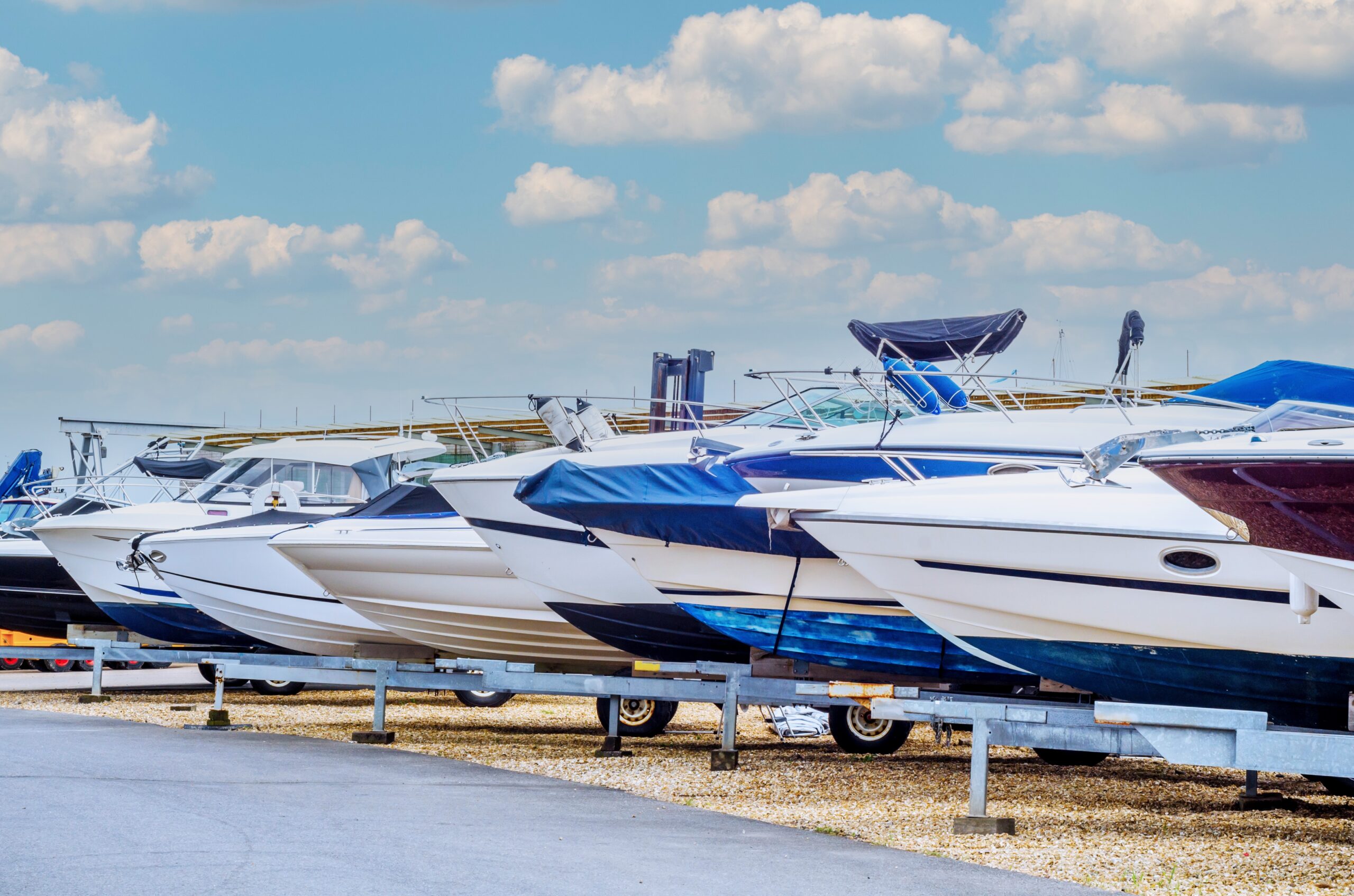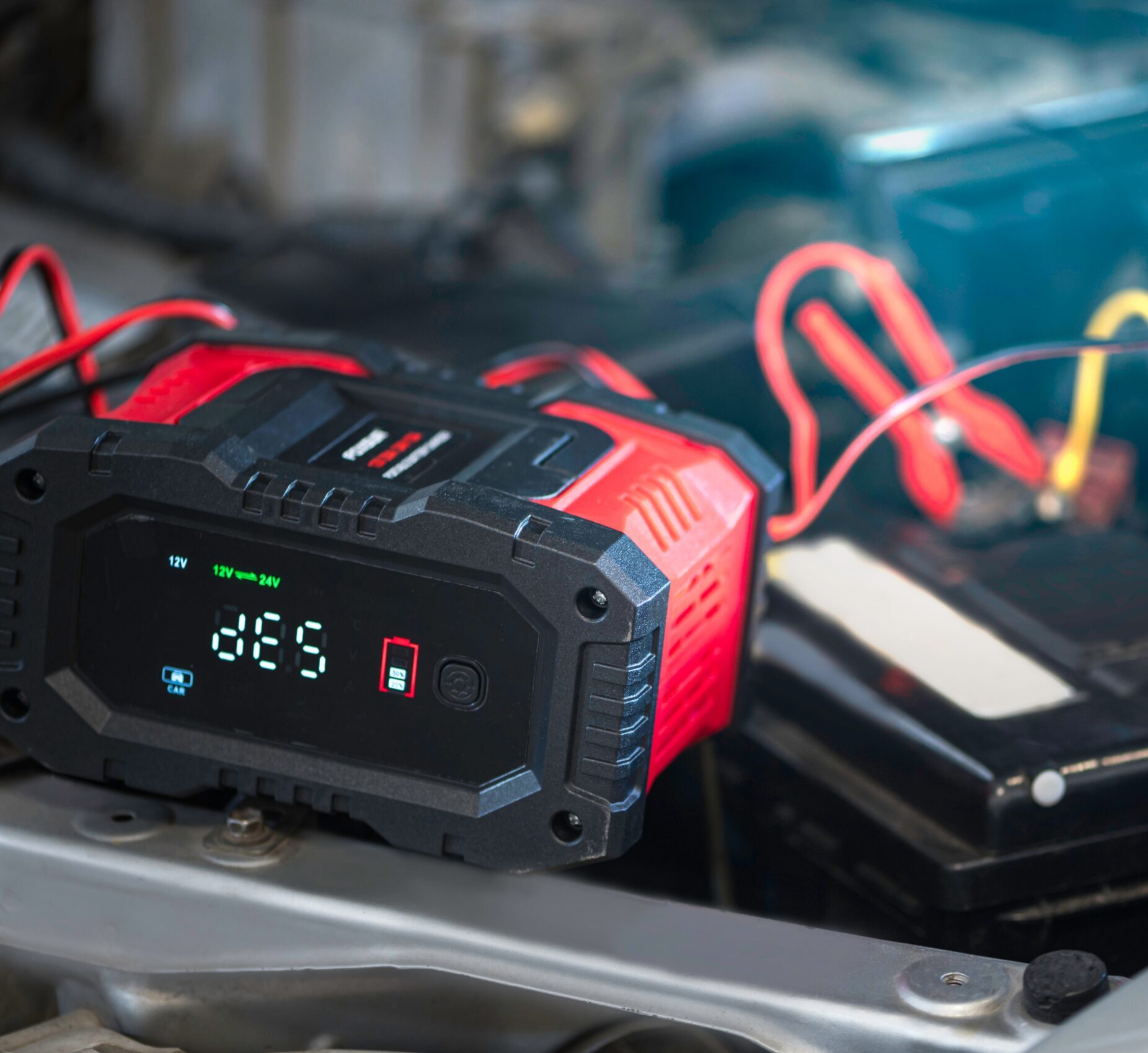Article takeaways
- To properly preserve wine, pay attention to temperature, humidity, light, vibration, and bottle position.
- Small wine collections can be stored at home or in a climate-controlled storage unit.
- Large and expensive wine collections will benefit from professional wine storage cellars.
From casual drinkers to seasoned collectors, to professional caterers and food truck operators offering something extra special with their craft tacos or burgers, wine makes up a huge part of the United States economy, averaging 4.2 gallons of wine consumed per person per year. Despite this, many people don’t store their wines properly, leading to expensive vintages losing their value and less expensive bottles losing their flavor.
Fortunately, there are plenty of options for wine enthusiasts of all kinds and budgets to keep their collections in prime condition. Here, we’ll answer some important questions to help you get started improving your wine storage and help you determine whether a climate-controlled storage unit is right for your wine storage needs.
How can I properly store wines?
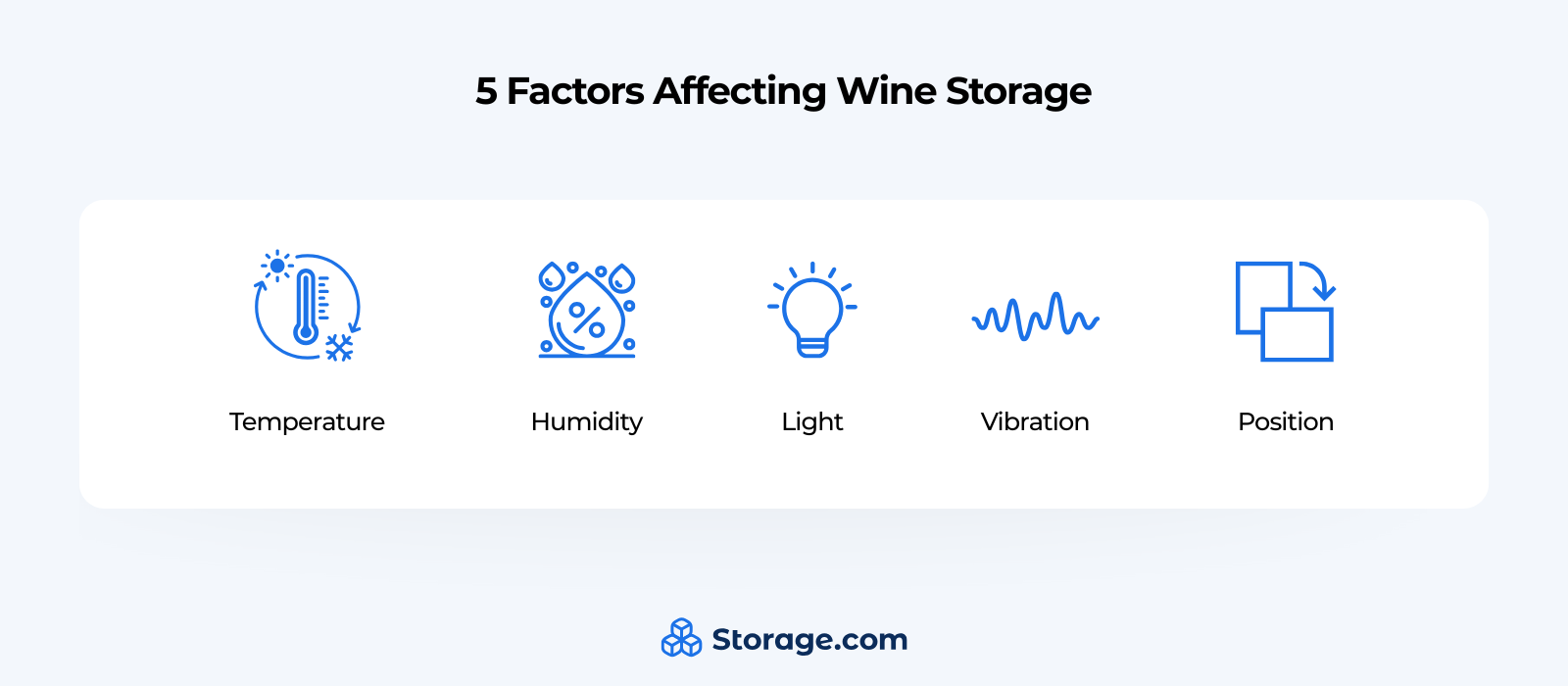
Five factors contribute to whether a wine will be properly preserved or not: temperature, humidity, light, vibration, and position. Let’s look at each.
- Temperature: Storing wine at too high a temperature can cause it to age and introduce flavors you don’t want. Keeping wine in a consistent, temperature-controlled environment will preserve it for a longer time and make sure its flavor doesn’t change.
- Humidity: Wine should be kept in a medium-humidity environment to preserve the bottle and cork. With too much moisture in the air, you may end up with damaged labels and mold on the bottles; too little moisture may dry out the corks and cause them to crumble.
- Light: Sunlight and other ultraviolet lights can cause unwanted reactions in wine, especially in clear bottles. These reactions lead to bad smells and spoiled tastes.
- Vibration: To keep wine preserved and prevent aging, you shouldn’t disturb the bottles unless you absolutely need them. A good wine cellar is insulated from any unwanted disturbances, such as cars driving by or foot traffic, that might vibrate the wines and cause the sediment in the bottles to react with the liquid.
- Position: Wine bottles with corks should be stored in a horizontal position to prevent oxidation and keep the cork from drying out.
If you have the budget for it, you may have already considered investing in a high-quality wine cellar for your home that maintains a predictable temperature and humidity level, blocks UV light, and insulates your wines from vibrations while allowing you to store bottles horizontally. However, if you don’t have the space or money to do something like this, consider a climate-controlled storage unit to check off most of the boxes for proper wine storage.
What temperature should I store my wines at?
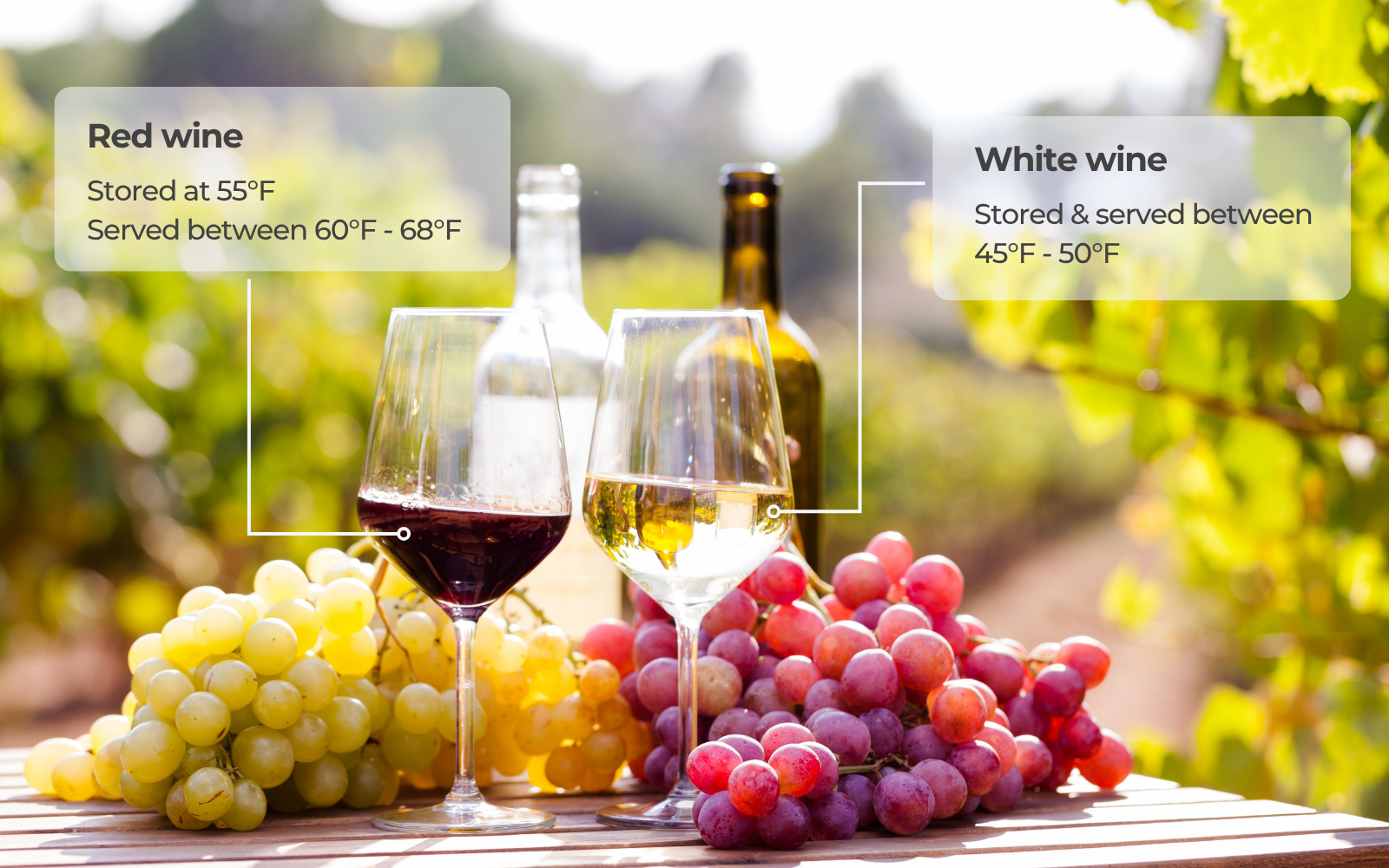
Similar to proper whiskey storage, most wines should be stored between 45° and 65°F, with 50-59°F hitting that sweet spot for most pours.
If you’re ready to take your knowledge to the next level, then it’s important to recognize that different types of wine may require more specific temperature and humidity levels:
- Red wines should be stored at around 55°F and served between 60°F and 68°F.
- White wines should be stored and served between 45°F and 50°F.
The most important factor in controlling temperature for wine storage is making sure it stays within a consistent range.
Extreme temperature fluctuations can cause or speed up chemical reactions, dulling the flavor and adding unwanted tastes. Thankfully, climate-controlled self-storage units are built to maintain this temperature.
How can I store a wine for an extended period without it going bad?
Storing wine long-term depends on the type of wine. As a general rule, the less complex the flavor of the wine, the less suited it is for long-term aging and storage.
- Rosé, light-bodied white, non-vintage sparkling, and sweet wines are all better suited for drinking as soon as possible.
- Full-bodied reds, Bordeaux blends, and vintage port wines, on the other hand, are well-suited to aging and developing their flavor profile over time.
To make sure your wines are preserved over time, keep humidity steady (around 70% is best) to maintain the cork, and store corked bottles on their sides. You should also create detailed logs to track each bottle.
Investing in specialized wine storage lets you maintain this humidity and store bottles in their ideal positions, alongside added benefits like security and insurance in case of any incidents.
How can I store wines in my home?
If you have a small collection of wines or you’re more of a casual drinker, there are plenty of at-home storage options to keep your bottles in the best condition between servings, such as wine refrigerators (standard refrigerators are usually too cold for long-term wine storage).
Wine fridges are compact, similar in size to a common mini-fridge, but the size you’ll need depends on the number of bottles or cans you own.
You can choose from single-zone and dual-zone fridges, the latter giving you two different temperature areas in case the wines you’re storing are best stored at different temperatures.
If a dedicated wine fridge isn’t in the cards for you, consider getting a wine storage rack for an empty pantry or closet space, or converting a space under your stairs into a small wine closet.
Never store wine in the garage or attic, and don’t store it out in the open in the kitchen; these all have wildly fluctuating temperatures and humidity. Use any extra space in your wine storage area to store your barware.
If you don’t have the space to store wine in your home, consider renting wine storage for cellar-like conditions without having to make costly renovations.
Wine fridges can cost $500 to $1000 at their most basic and smallest, while you can pay as little as $7 per month to rent a wine storage unit in some locations.
What position should I store my wine in?
Most corked wine bottles should be stored on their side for best results.
Sideways storage allows the wine to stay in contact with the cork and moisturize it, and allows the sediment to settle inside the bottle at the same time. Wines with screw caps, however, can be stored upright without much issue.
Regardless of the way the wine is sealed, most storage solutions are geared towards horizontal storage, as it allows for better use of space as well.
Professional wine storage facilities, for example, have racking systems that store bottles horizontally while also allowing you to pull them out and inspect them easily.
How can I make sure my wine lasts as long as possible?
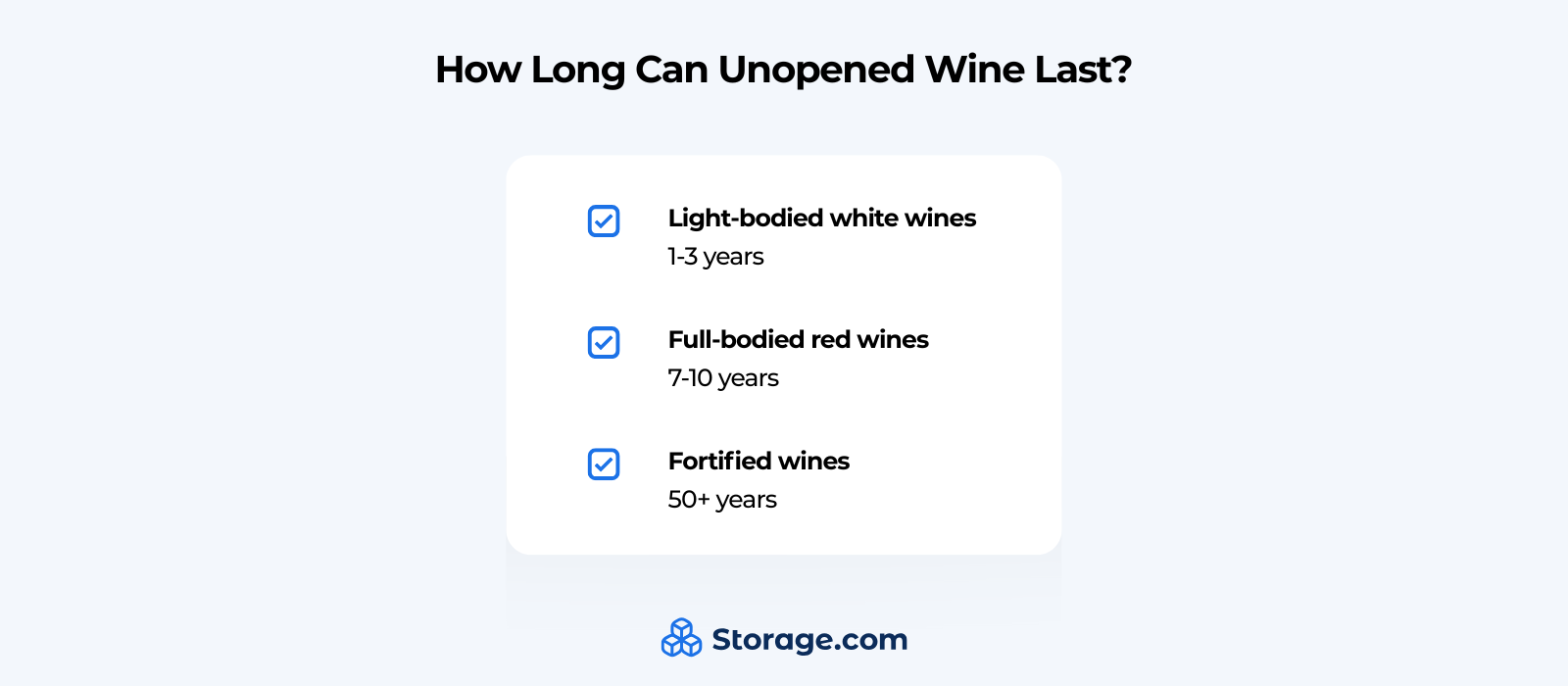
If you want your wine to last a long time, make sure you don’t open it until you’re ready to sip it. Unopened wine can last from 1-3 years (for light-bodied white wines) to 7-10 years for full-bodied red wines, and even 50+ years for fortified wines like Madeira.
In contrast, once opened, most wines will oxidize and go bad within 4 to 7 days. You can tell when wine goes bad by a leaking or stained cork, a flat, oxidized smell, or a sour or acidic taste.
Improper storage conditions will sharply reduce the shelf life of your wine. Temperature changes can cause the wine to expand and contract, pushing out the cork or letting air in, and allowing sunlight to contact the wine can cause unwanted chemical reactions.
Building a wine cellar or investing in a wine storage unit will keep all these unwanted elements away and ensure your wine lasts as long as possible.
How do I store valuable wines properly?
Wines of all kinds benefit from a predictable climate that you can monitor and change as needed, but valuable wines are stored best with some level of security to prevent theft.
Controlling the environment will keep these wines from going bad and losing their value, and incorporating some level of security and insurance will protect your investment long-term and give you peace of mind.
It’s also worth looking into an inventory management app specifically geared towards wine to help you keep track of your collection.
Professional wine storage solutions are some of the best options for storing the most expensive of wines, as they come with all of the most important factors built in; you’ll have professional security monitoring your unit to keep intruders away, climate control with backup power in case of an outage, and insurance to help you recover any lost value in the unlikely event of a system failure or theft.
How should I store or pack wine when moving?
If you’re moving to a new place, you’ll want to find solid temporary storage for your wine collection, or otherwise pack it properly so you can transport it without incident.
Invest in wine shipping boxes if you plan on transporting your collection yourself, as they’re built to keep several bottles from breaking or spoiling, and individually wrap and label each bottle as you pack them.
However, if you’re concerned about climate, look into short-term wine storage to protect your most valuable bottles as you move.
Storage units are perfect for this purpose, giving you a dedicated space to store your collection and keep it secure. Be sure to look into climate-controlled units or specialized wine storage to keep your bottles at an optimal temperature and humidity.
When should I consider renting specialized wine storage?
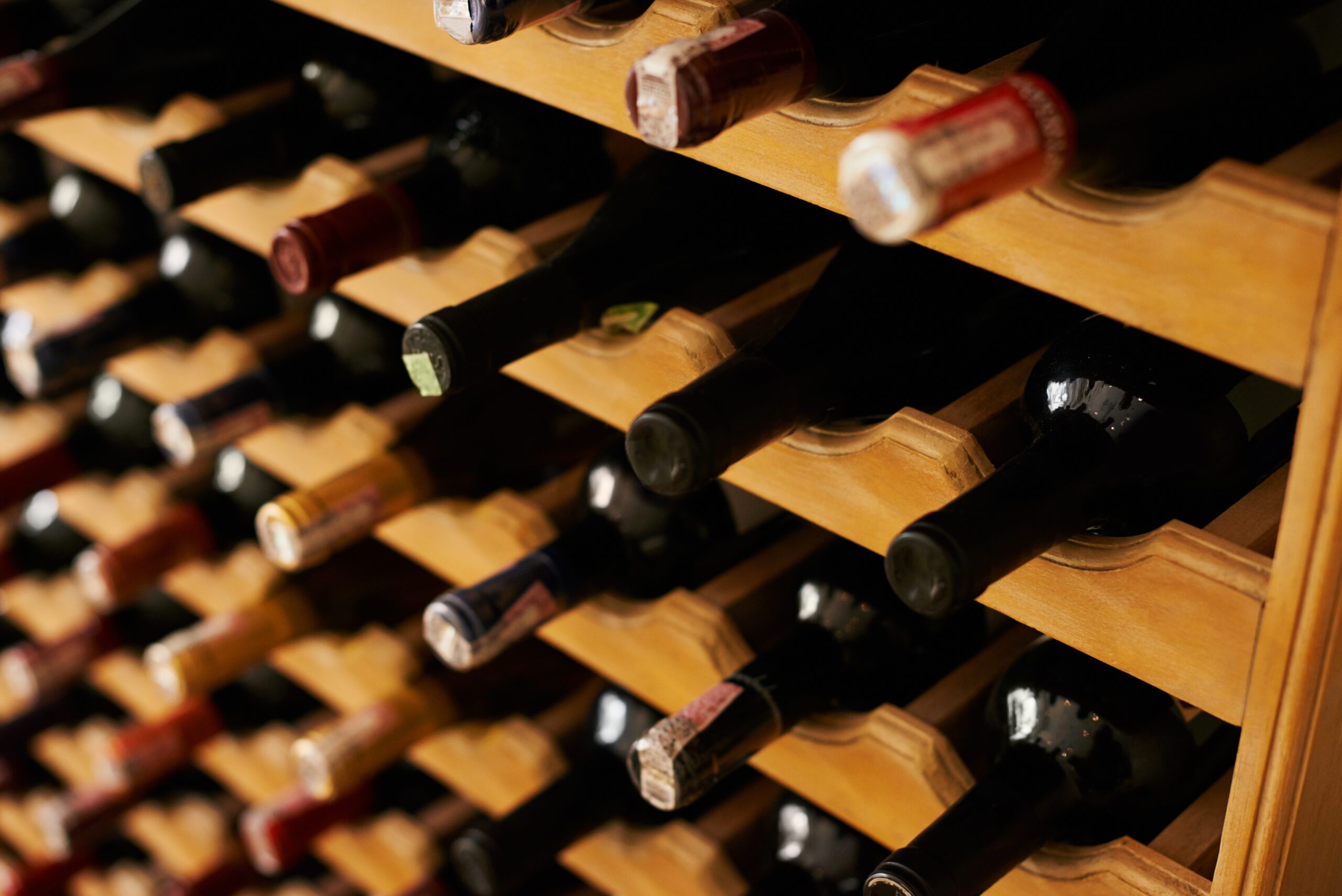
A small-to-medium-sized collection of wine bottles can easily be stored in an at-home wine fridge or a climate-controlled storage unit, but if you have a large collection of over 100 bottles, it may be time to look into specialized wine storage.
These professional cellars are dedicated to storing collections and keeping them safe and pristine while being far cheaper than building your own cellar or investing in multiple wine fridges.
Climate-controlled wine storage provides you with specialized racking systems to store bottles on their sides, consistent temperature and humidity ranges to keep the environment from affecting the bottles, isolation from outside vibrations to prevent disturbances, and protection from UV light.
They also come with built-in insurance and security to protect your peace of mind, and many offer 24-hour access so you can examine your collection at your leisure.
How do I find the right wine storage solution for me?
No matter the size of your collection, finding ways to protect your valuable bottles from shifting climates, UV light, and unwanted vibrations should be your main concern.
There are plenty of solutions to store your wine at home and maintain a consistent environment, but if you’re a serious collector who wants to protect your investment, professional wine storage is perfect for your needs.
Looking for wine storage near you and want to compare costs? We can help! Use our built-in search tool to find all the best storage options near you and filter them by the specific features you’re looking for.
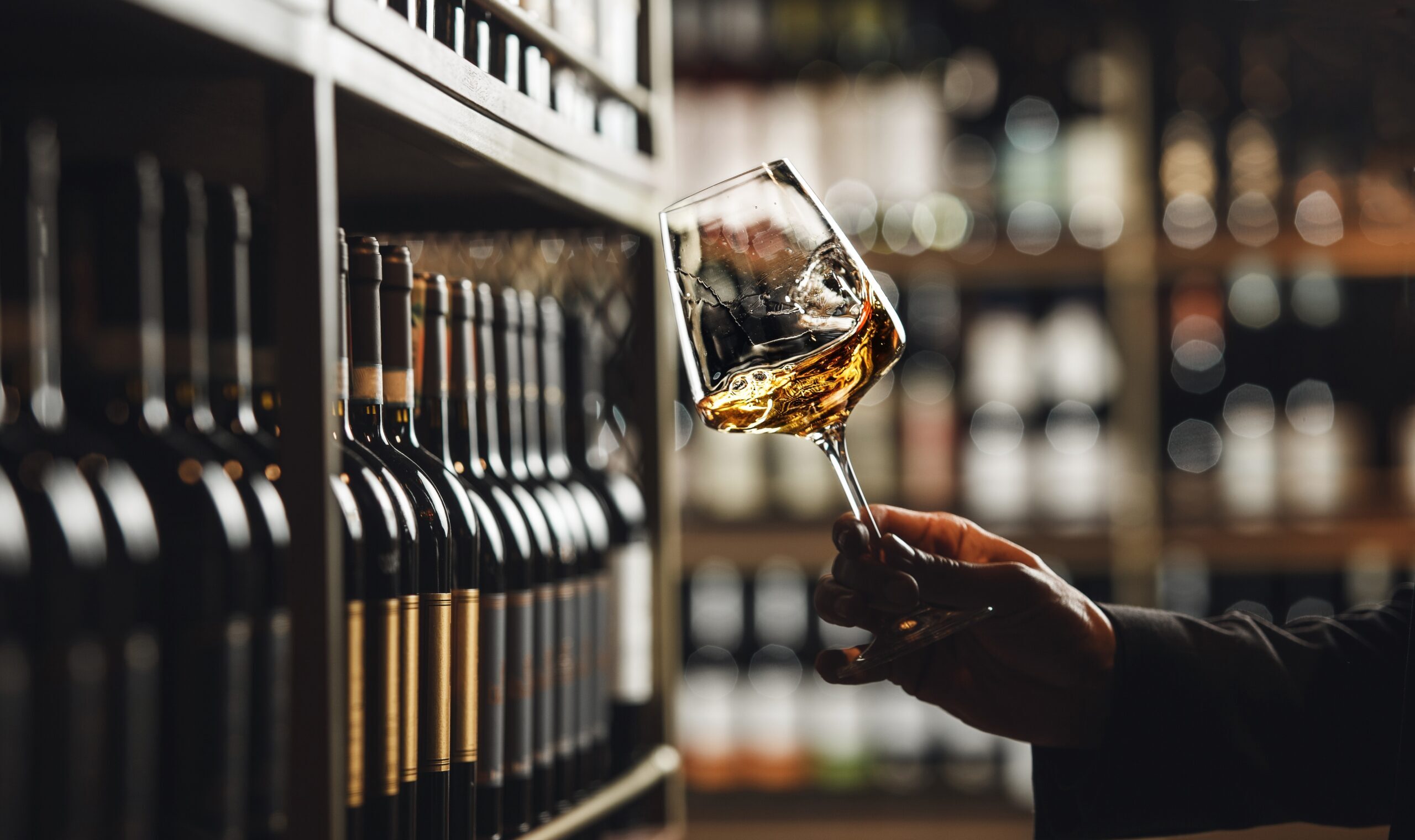
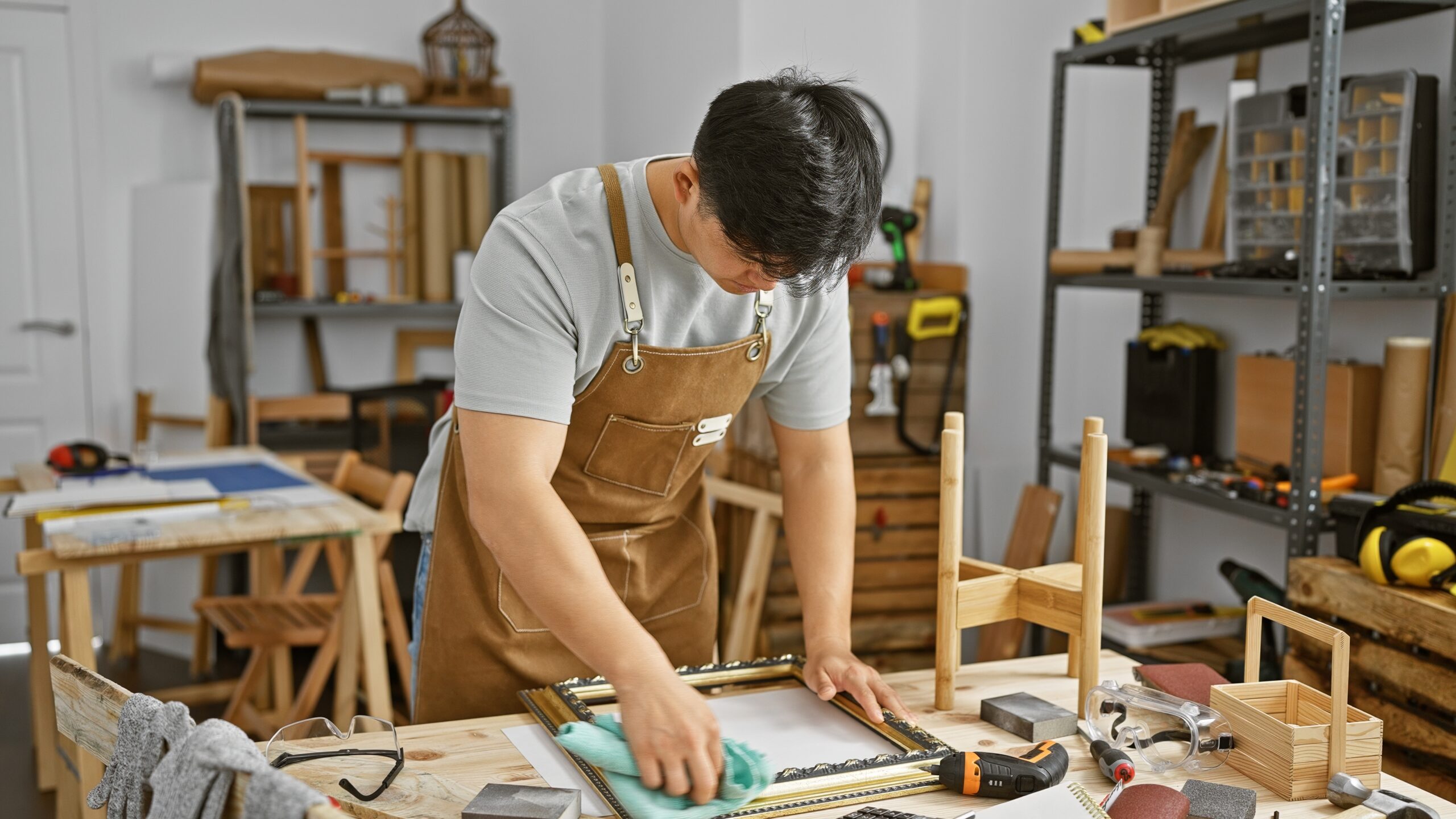

![The Ultimate RV Packing List & Checklist [Printable]](https://www.storage.com/blog/wp-content/uploads/2025/08/shutterstock_2490234073-e1756329334567.jpg)
